
Many of the young orphans gather round to watch, and lend their support, as Pete O'Neal has fresh ink applied to his fading black panther tattoo. (Barbara Davidson / Los Angeles Times)
By Christopher Goffard, Los Angeles Times
January 29, 2012
Reporting from Imbaseni, Tanzania -- The fugitive shuffles to his computer and begins typing out his will. He is about to turn 71, and it is time. "My life," he writes, "has been a wild and wicked ride...."
All Pete O'Neal has amassed fits on two pages: A small brick home with a sheet-metal roof. A few road-beaten vehicles. A cluster of bunkhouses and classrooms he spent decades building, brick by scavenged brick, near the slopes of Mt. Meru's volcanic cone. Everything will go to his wife of 42 years, Charlotte, and to a few trusted workers.
He prints out the will late one Saturday morning and settles into his reclining chair to check the spelling. He signs his name. Then, to guarantee its authenticity, he finds an ink pad, rolls his thumb across it, and affixes his thumbprint to the bottom of the page.
"I think that'll do it," he says.

Map: Imbaseni, Tanzania

When last he walked America's streets, O'Neal was a magnetic young man possessed of bottomless anger. He was an ex-con who'd found a kind of religion in late-'60s black nationalism, a vain, violent street hustler reborn in a Black Panther uniform of dark sunglasses, beret and leather jacket. With pitiless, knife-sharp diction, he spoke of sending police to their graves.
This morning, he sits in his living room uncapping medicine bottles. A pill for high blood pressure. Another for the pain in his back and his bad knee. An aspirin to thin his blood. Time is catching him, like the lions that pursue him implacably through his nightmares, their leashes held by policemen.
He pushes through his screen door into the brisk morning air. A slightly stooped, thickset man with long, graying dreadlocks, he moves unsteadily down the irregular stone steps he built into the sloping dirt. He makes his way past the enormous avocado tree, past the horse barn with its single slow-footed tenant, Bullet, past the shaded dining pavilion.
His four-acre compound bustles with visitors, many of them preparing for a memorial service for Geronimo Pratt, a former Panther who died in his farmhouse down the road, his affairs untidy, his will unfinished, his death a sharp message to O'Neal not to put off the paperwork any longer.
Most of O'Neal's big dreams have faded over the years, or come to feel silly. Like beating the 42-year-old federal gun charges that caused him to flee the United States. Like the global socialist revolution that he was supposed to help lead. Like returning home to the streets of his Midwestern childhood. Like winning citizenship in his adopted African country, and the prize that's eluded him on two continents: the feeling of belonging somewhere.
This is what's left: the shell of a 20-year-old Toyota Coaster bus that bulks before him in a clearing. It's a stripped-and-gutted 29-seater that he bought for $11,500 after years of squirreling away money. It came with dents, a cracked windshield, a peeling paint job, rotting floorboards, frayed seats.
Still, it seemed like a good deal until he found the engine had to be replaced, costing an additional $4,000. He's hired mechanics and craftsmen to rebuild the bus nearly from the chassis up, and a few of them are milling around now, informing him in Swahili of their progress.
He rarely leaves home anymore. Crowds jangle his nerves; traffic makes his hands shake. Yet nothing feels more urgent than readying this bus for an improbable 300-mile trip to the edge of his adopted continent.
A group of American high school students, mostly white, is gathering in the dining pavilion. They've been coming by the busload for years, many drawn by the intrigue of staying with a former Panther. They pay him $30 a night for a bunk. The money — together with sporadic donations from sympathetic friends here and abroad — pays the bills.

Pete O'Neal in his Black Panther days. (Barbara Davidson / Los Angeles Times)
The students pause before the big poster featuring O'Neal as a fierce young militant, rifle in arms, Charlotte at his side. It's hard to reconcile that image with the grandfatherly host who greets them in Swahili as if they were old friends, booming, "Karibu!" Welcome!
He asks where they're from. A girl says Missouri, which happens to be his home state, and he hugs her theatrically. Everyone laughs. "All of you are welcome," he says, "even if you're from strange places."
He plants them before documentary footage about his life. It's easier than explaining the whole story himself. Where would he start? His childhood in segregated Kansas City, Mo., where the amusement park admitted black kids once a year, a day so cherished that they went in their Sunday best? Should he start with the stabbings and shootings in the projects where he grew up?
"I lived in the streets," he says. "I didn't have time to be happy."
After one arrest, he was given a stark choice: reform school or the armed services. The Navy threw him out after he plunged a butcher knife into another sailor's chest over an insult, nearly killing him. He drifted in and out of lockup. He pimped girls in three states. He wore $300 Italian suits and a blond wave in his processed hair.
To the FBI, the Panthers were homegrown terrorists who romanticized lawbreaking with overheated Marxist rhetoric. To O'Neal, who founded the Kansas City chapter of the party in early 1969, it represented a lifeline out of an abyss of drugs and aimlessness. He blazed with purpose: End racism and class inequality, fast.
"I would like very much to shoot my way into the House of Representatives," he declared in a televised interview, angry at a congressman who was investigating the Panthers. Pressed to clarify, he added: "I mean it literally."
He stormed into a Senate subcommittee hearing in Washington, screaming accusations that the Kansas City police chief was funneling weapons to white supremacist groups.
Shortly afterward, a federal judge sentenced him to a four-year prison term on a conviction of transporting a shotgun across state lines. Out on bail, he decided to run. He and Charlotte fled in 1970 to Sweden, then to Algeria, and finally, in late 1972, to Tanzania, whose socialist government welcomed left-wing militants.
The O'Neals had $700. After a few years they bought a patch of inhospitable brush and volcanic rock in Imbaseni, a cobra-infested village of thatched-roof shacks in the country's remote northern interior. They were up before dawn, dancing with Al Jarreau on the tape deck, gathering locals for the day's work. Their two young African-born children, Malcolm and Stormy, carried bricks and water buckets.
Soon they had four walls, a roof, and little else. Plastic hung over the windows. No toilets
Soon they had four walls, a roof, and little else. Plastic hung over the windows. No toilets. It was the back-to-Africa experience so many black Americans talked about, minus the option of escape. They learned to grow corn and raise chickens. He jarred pickle relish, smoked sausages and bottled barbecue sauce for sale to local shops.
His temper was thunderous. When he heard something in Swahili that sounded offensive — such as wa-negro, a neutral description of black Americans implying no malice — he would scream, ready to fight.
"We were cowboys then," says Ikaweba Bunting, 63, a Compton-raised college professor who arrived in Tanzania in the 1970s and stayed for years. "We were big and hard-walking and hard-talking, and ready to beat people up — the whole street culture."
Exile was supposed to be temporary. O'Neal corresponded with other Panthers and planned to return home to help lead the revolution. He watched from abroad as the party collapsed from infighting, arrests and an FBI campaign of surveillance and sabotage. People stopped talking about revolution. Radicals found new lives.
O'Neal's exile became permanent. His fury abated. Some of it was age. Some of it was Tanzania, where strangers always materialized to push your Land Rover out of the mud, and where conflicts were resolved in community meetings in which everyone got to speak, interminably.
"It is so laid back, so reasonable, that to be otherwise makes you look, even to yourself, like a damn fool," O'Neal says.
Around that first crude brick structure, the fugitive improvised a little island of hope. He built a small recording studio for musicians and a workshop for artists. He gathered castoff computers and invited locals to come learn. He sank a well and opened the spigot to the village. It was, as he saw it, in the spirit of the free breakfast program he'd run as a Panther.
"He's had a chance to grow in a way that very few people get here," says his brother Brian O'Neal, 58, who lives in Kansas City.
Had he stayed in the States, Pete O'Neal believes, he'd be long dead from a shootout or street fight.
If exile saved him, it has also meant a life in which the sense of being a stranger never goes away.
"There's always a feeling of not being completely part of this culture. I know I am of a different tribe," he says. "People like me here, they love me, but I'm always other than."
Back in his house, he relaxes with a few shots of Jim Beam. He keeps a shotgun for snakes and a wall full of books. In mock-stentorian tones, he ridicules his early blood-soaked rhetoric. He puts a hand over his face, like an actor reminded of an embarrassing role, and says, "That was a man who was trying to find himself. He was trying to shed his skin, and emerge brand-new. I think he overstated and overacted."
For his radicalism itself, however, he won't apologize, even if — as he suspects — it is the one thing that might gain him safe entry back into the States.
"They will never convince me in my life," he says, "that what I was doing wasn't right."

All the orphans get a razored haircut -- both boys and girls -- and wash off the loose stubble under cold water at the tap. (Barbara Davidson / Los Angeles Times)
A few years back, an ambition seized him. The village had scores of destitute children, orphans from dirt-floor shacks and subsistence farms. He collected donations and built a concrete-block bunkhouse down near his tomato and pepper garden.
He spread word that he had room for a few kids. More than 100 appeared at his door, many shoeless. He had to send the majority away. The most desperate, a couple dozen, he informally adopted.
Now, they roam his grounds in lively packs, playing four square on the basketball court. They sleep in rows under malaria nets. Volunteers and a few staff members watch over the children and give them English and computer classes.
They call him Babu. Grandfather.
How big is the ocean?
So big you can't see across it.
Really?
So big you can go for weeks and never see land.
He shows them a globe.
See how much more ocean there is than land?
So is it bigger than Tanzania?

American high school students gather around Pete O'Neal in his compound's dining pavilion. (Barbara Davidson / Los Angeles Times)
The American high school students have questions, so he takes a seat before them. It's late, and he's weary, but this is his living. They want to know what country he belongs to, exactly.
He has no passport, he explains, and the Tanzanian government has rebuffed his efforts to become a citizen. "I'm not sure where the hell I belong at this particular point," he tells the students.
For years, he sought a way home. He found American lawyers willing to work for free to fight the gun charges. He would like to see his 91-year-old mother in Kansas City one last time.
His longing for the States comes at funny moments, as when he sees shrimp sailing through the air in Red Lobster commercials. He still dreams about the Kansas City he knew as a child, the bakeries and the public swimming pool and the ladies with their hats. But the city seems wrong, somehow, becoming weirdly unrecognizable.
In other dreams, he finds himself fleeing from things he can't see or name, urging his wife, "Charlotte, you gotta run!"
He regards his complex of bunkhouses, workshops and classrooms as "socialism in microcosm," he tells the students, though doctrinaire Marxism left him disillusioned. People, he concluded, are basically selfish.
Have his views on violence changed?
"I don't have the particular type of courage that would allow me to turn the other cheek."
One fresh-faced girl says she's been in Tanzania a week, and thinks it might be neat to move here. Does he recommend it?
Patiently, he replies: "It ain't that kind of party."
Of late, he tells the students, he's been haunted by the deaths of other exiled Panthers. One died in France last February, another in Zambia in October.
Then there was his close friend Elmer "Geronimo" Pratt, the Panthers' former field marshal, who spent 27 years behind bars on a murder conviction before a California judge overturned it.
In 2002, Pratt bought a big farmhouse nearby with his false-imprisonment settlement, and O'Neal felt as though he'd rediscovered a lost brother. They drove through the village listening to Richard Pryor CDs, laughing until they wheezed and tears rolled down their cheeks.
Pratt was hospitalized with high blood pressure in May. He hated any confinement. He pulled out his IVs and went home. Days later, O'Neal found him on his side, dead in bed, just 63. His memorial would be tomorrow.
"People are dropping, man," he tells the students. He doesn't say that his thoughts were circling his own mortality so relentlessly that he couldn't sleep last night, and climbed out of bed to tally up what he would leave behind.

Pete O'Neal's four-acre compound bustles with visitors, some of them preparing dance routines for the memorial service for Elmer "Geronimo" Pratt, the onetime Black Panther who died in his farmhouse down the road. (Barbara Davidson / Los Angeles Times)
Hundreds gather for Pratt's memorial service. O'Neal sits on the stage under the avocado tree and tells a few stories about their friendship: How Pratt always told him his toes were ugly. How they joked endlessly about who was the bigger hayseed.
Amid the prayers and the singing and the tributes, he manages to steal away for a few moments to inspect the bus. The seats are lined up in the dirt, ready to be scrubbed and resewn. The windows are taped up so the painting can begin. Panther colors: black and light blue.
He remembers discovering the ocean.
He was in his late teens, a heartland kid who believed his fearful precinct of Kansas City was the absolute center of the world, its ugliness and bigotry a true picture of the world. It is why, to his mind, violent revolution looked logical and inevitable.
Then he arrived in California to report for duty in the Navy, and turned his head and saw the Pacific. His breath was caught short by the immensity of it, all that blue stretching out into other lands, other stories. It was the start of a decades-long lesson that the world is bigger, more complicated and interesting than his little plot of bitter experience had led him to suspect.
His orphans have never left this inland region of cornfields and malarial swamps. They've never tasted salt water, or felt hot beach sand between their toes.
"They have no idea — no idea — what the ocean is," he says.
Nights and weekends, they pile into his living room and watch documentaries about sea life. He tells them about whales, giant squid, blind fish in the lightless deep. He regales them with shark stories.
Will they eat me?
If they're hungry enough, they'll try.
Because they don't like me?
No, it's the natural order of things.
Now and then he indulges in what he calls "Kansas City exaggeration," and even the majestic sea gets some burnishing. The sharks in his stories grow bigger than houses.
The kids study the TV. The sharks don't look that big.
OK. But they do have sharks bigger than that car.
The 29-seater is ready by late summer. The engine has been replaced, the dents in the body hammered out. The exterior has been sanded and smoothed, primed and painted, with a Panther emblem emblazoned beneath the big front window.
One day soon, he hopes to take the children southeast across the country to the Swahili Coast, with its coral reefs and pale sand and bright-painted old dhows. He planned to do it over Christmas, but a new pill regimen left him enervated. And money was short.
He'll need $2,000 for diesel fuel, food, tents. He hates to beg, but he believes the trip will be the culmination of every good instinct he's ever had — "The highest point in my life," he says — and he's calling in every favor.
His blood pressure, alarmingly high, keeps reminding him to be quick. "I could hear Geronimo say, 'We got a place reserved for you, come on down and keep me company.'" He told his friend no. Not yet.
In his sleep, the lions give chase. In the morning, he stands dreaming before the bus. They're running into the Indian Ocean, a man without a country surrounded by children who have barely seen theirs. He gives them the gift of an enlarged world, before his ends.
christopher.goffard@latimes.com









 When last he walked America’s streets, O’Neal was a magnetic young man possessed of bottomless anger. He was an ex-con who’d found a kind of religion in late-’60s black nationalism, a vain, violent street hustler reborn in a Black Panther uniform of dark sunglasses, beret and leather jacket. With pitiless, knife-sharp diction, he spoke of sending police to their graves.
When last he walked America’s streets, O’Neal was a magnetic young man possessed of bottomless anger. He was an ex-con who’d found a kind of religion in late-’60s black nationalism, a vain, violent street hustler reborn in a Black Panther uniform of dark sunglasses, beret and leather jacket. With pitiless, knife-sharp diction, he spoke of sending police to their graves.








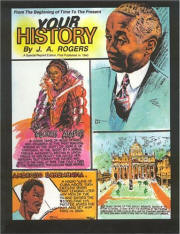
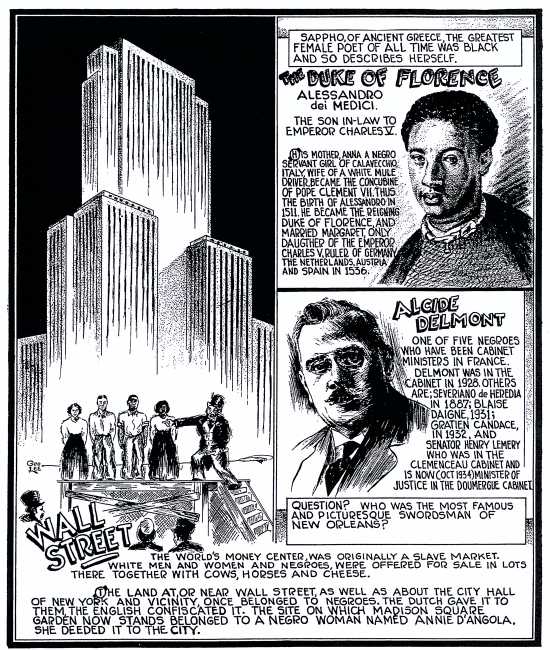
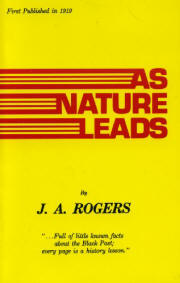
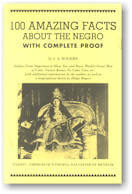
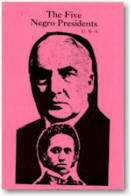

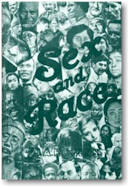
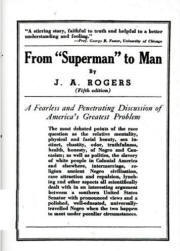
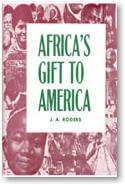





Replies